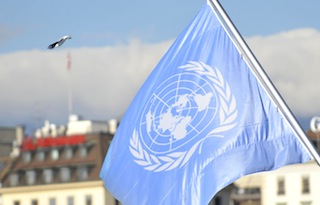
HRC38 | A High Commissioner for Human Rights Defenders
In a joint statement delivered at the 38th session of the UN Human Rights Council, ISHR and 10 organisations highlighted the key features of the next UN High Commissioner for Human Rights: a dedicated human rights defender with a deep commitment to the principles and practice of universal human rights.
The work of human rights defenders is essential to justice, fairness and dignity for all. Defenders contribute to sustainable and inclusive development. They combat corruption and the misuse of power. They promote good government, transparency and accountability. They seek to ensure that no-one gets left behind.
Despite this, around the world, human rights defenders face mounting attacks and criminalisation for standing up to power, privilege, prejudice and profit. They face worsening reprisals for providing information and evidence to human rights watchdogs, including the UN.
Their work has never been more important, nor more imperiled.
The next UN High Commissioner for Human Rights needs to be a dedicated human rights defender; a person with a deep commitment to the principles and practice of universal human rights. In addition to being a defender, the next High Commissioner also needs to be committed to working with and for human rights defenders; consulting and partnering with them, supporting their causes, and speaking out and protecting them when they are threatened or attacked.
The next High Commissioner needs to be fiercely independent, but also collaborative and capable of building influential partnerships and coalitions. Beholden to no stakeholder, however powerful, the next High Commissioner needs to build strategic alliances with States, civil society, academics and business enterprises with a shared interest in human rights and the rule of law.
With the promotion, protection and realisation of human rights being inextricably linked to the attainment of peace, security and sustainable development, the next High Commissioner needs to be strongly supported by the UN Secretary-General and key UN agencies, such as the UN Development Programme. While the High Commissioner may be the UN’s premier human rights defender, it is time for the entire organisation to put human rights defenders up front.
Watch the statement here:
Read the statement here.
Photo: Jean Marc Ferré
